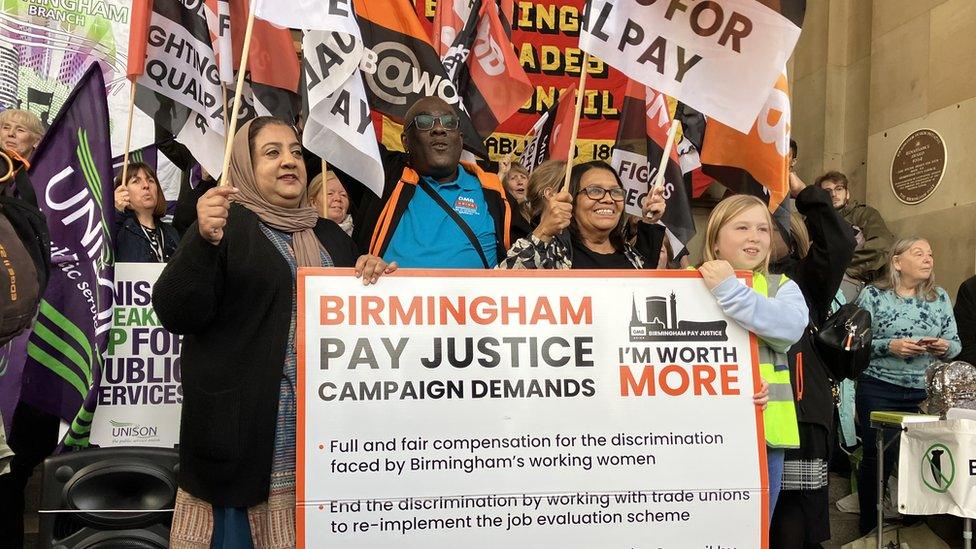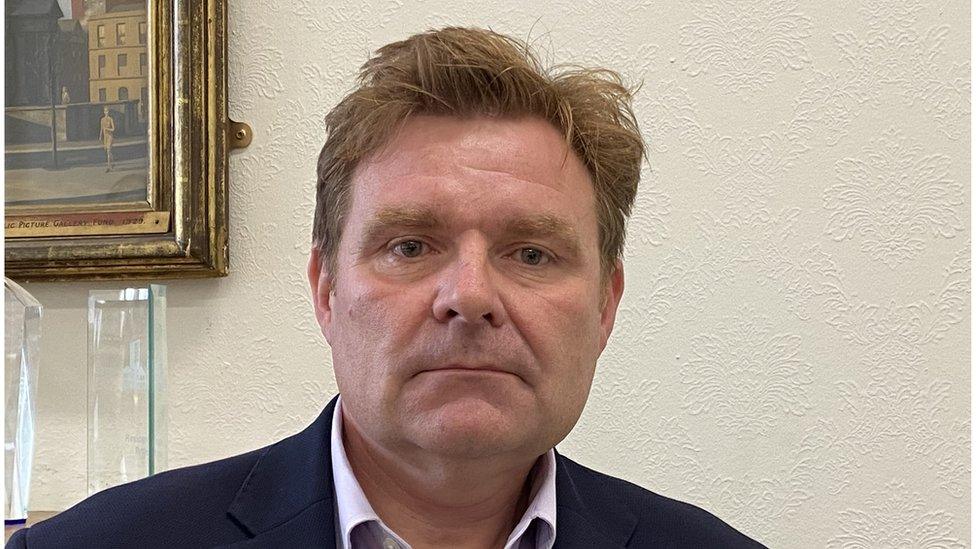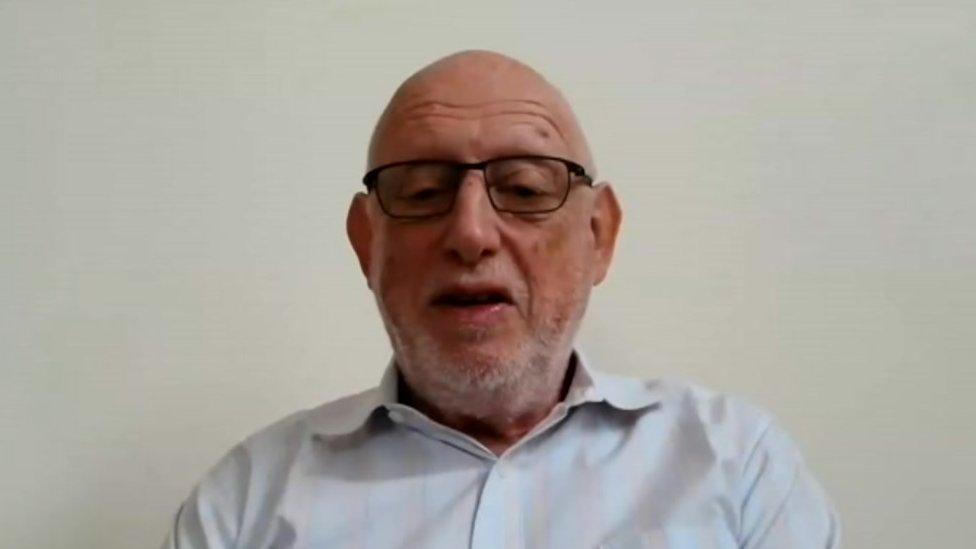Bankrupt Birmingham: Why the council went bust
- Published

The GMB union claims it has found evidence the council was not properly implementing a crucial job evaluation scheme
A deal that would have settled Birmingham's huge equal pay claims without "bankrupting" the council fell apart after trade unions found members were still suffering discrimination.
Birmingham City Council is in financial crisis on multiple fronts.
Equal pay claims of up to £760m are among the bills it cannot afford.
But since the extent of the crisis was revealed last month, it has emerged the council thought it could originally settle the matter for just £120m.
It would have happened via what is known as a "memorandum of understanding" with unions and staff.
But this deal collapsed when the GMB union claimed it had found evidence the council was not properly implementing a crucial job evaluation scheme meant to ensure male and female employees were paid equally.
There were also concerns over the continuation of a practice called "task and finish" - an arrangement in which some staff could clock off before the end of a shift, if their tasks were completed. It was widespread in the male dominated waste collection service, and some other parts of the council, but staff in areas where large numbers of women were employed were unable to do the same.
The council has since ceased all non-essential spending, issuing in September a Section 114 notice - formal admission it could no longer balance its books and was effectively bankrupt.
Alongside equal pay, the authority is counting the cost of an £80m overspend on an IT project called Oracle.
The council also has a projected overspend in this year's budget of £83m, giving it potential total liabilities of almost £1bn.
Secretary of State for Levelling Up, Michael Gove, blamed "under-performance, poor leadership, weak governance, woeful mismanagement of employee relations and ineffective service delivery" at the Labour run council.
Last week, commissioners were sent in by the government to help run the authority for the next five years.
Listen to File on 4: Bankrupt Birmingham on BBC Sounds.

West Midlands GMB union senior organiser, Stuart Richards, said the council pay structures were "not fit for purpose"
Stuart Richards, from the GMB union in the West Midlands, said information emerged from an employment tribunal in late 2021 that showed the council's pay structures were "not fit for purpose".
He added: "That was a real big deal. We also became aware that there were groups of male workers working in the waste service that were working reduced hours but still being paid full time. And there was no mitigation across the rest of the council for that.
"There's nothing wrong with workers advancing their own terms and conditions but you can't do that at the expense of other workers."
Because of these two factors, the GMB advised members not to sign up to the memorandum of understanding, and began to launch equal pay claims.
It has also come to light that up until December of last year, senior leaders at the council were being assured that task and finish was not taking place anymore.
But in a meeting held on 7 September this year, just days after the Section 114 notice was issued, a council officer revealed attempts to stamp it out had failed.
In that meeting, Darren Hockaday, Birmingham's interim head of human resources, said: "In January, we discovered that task and finish was happening on a huge scale across waste, but not only waste but also in parks and gardens and potentially street scene as well."
Birmingham City Council's chief executive, Deborah Cadman, also told a recent meeting the council was taking "every action available" to stop task and finish, but could not confirm it had been eradicated completely.

Birmingham City Council leader, John Cotton, said "independent oversight" was needed
The current Labour leader of the council, John Cotton, took up his post in May of this year but has been a member of the ruling cabinet since 2019.
He told File on 4 he had previously received assurances that task and finish was not happening in the council, but added that "independent oversight" was needed to establish the facts.
Lee Wiggetts-Clinton, from the Unite union in Birmingham, which represents many of the bin workers, said he was "not aware" of task and finish operating in the bin service in the city.
Mr Hockaday had said that the scale of the equal pay claim liability, triggered by the collapse of the memorandum and the uncertainty over task and finish, became apparent late in 2022 and early in 2023, and that senior figures in the council were alerted to this in early February of 2023.
Some opposition members of the council have questioned whether the budget set at the end of February was legal, given the scale of the council's potential liabilities. Local authorities are legally obliged to set a balanced budget, one that takes into account all potential costs and liabilities.
Mr Cotton said that he was not made aware of the scale of potential equal pay liabilities until after he became leader, and after the council had set its budget towards the end of February.
He said: "There were also figures that were in a much lower range that were being circulated, but there was no definitive calculation or definitive information provided to me as a cabinet member or subsequently as leader of the council until the end of June around the scale of that liability."
Ian Ward, the previous leader of the council and in charge when the budget was set in February, said he did not wish to comment.
Listen to File on 4: Bankrupt Birmingham on BBC Sounds
Additional reporting by Phil Marzouk.

Related topics
- Published28 September 2023

- Published6 October 2023

- Published8 September 2023
